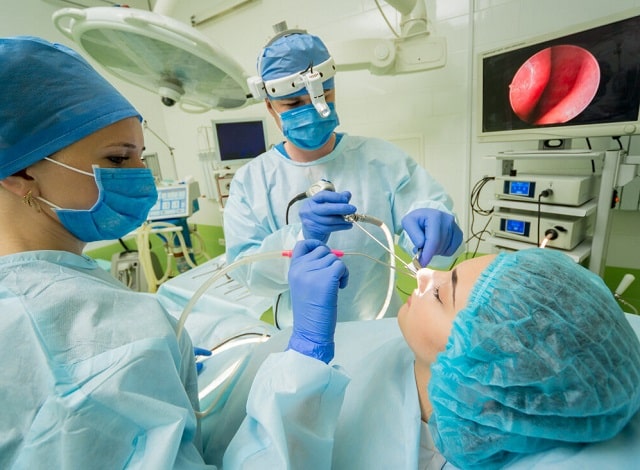
The majority of sinus infections go away on their own. Usually, those who suffer from these infections get relief from over-the-counter medicines, topical nasal steroids, and saline sprays. However, for some people, it is important to see an expert from Houston, TX Sinus Surgery for the possibility of getting surgical procedures done.
What To Do If You Have A Sinus Infection
If you suffer from a sinus infection, you must know what you can do to avoid surgery first. You should see surgery as your last resort. Think about your home and workplace environment. Consider using humidifiers for moistening the air because dry air can irritate your sinuses. Also, it is important to avoid smoke and allergy triggers. See your doctor for allergy treatment that may include regular shots. Also, consider getting a flu vaccine because flu and cold infections can lead to rhinosinusitis.
If you still get a sinus infection even if you have taken preventative measures, get medical therapy from an ENT specialist. You may need to be on antibiotics, nasal sprays, irrigations, and steroid medications for weeks. If you do not respond to treatment, you may need to get a CT scan to determine why the infection is persisting. Surgery may be necessary if you have a fungal infection or structural issues that make it impossible for your sinuses to drain, benign growth, or damaged sinus tissue.
3 Kinds Of Surgery You May Be Recommended To Undergo
Should you decide to get sinus surgery, your options include the following:
1. Endoscopy
This procedure involves inserting endoscopes into your nose. An instrument has a small camera lens meant to send images back to a screen. This allows your doctor to see the location of the sinus blockage and guide other instruments to get rid of scar tissue and polyps. Often, this procedure is performed with local anesthesia.
2. Balloon Sinuplasty
This surgery is preferred when there is nothing in your sinuses to be removed. During this procedure, a thin tube is placed into your nose. A small balloon is attached at the end of the tube. Your doctor will guide the balloon to where the blockage is occurring inside your nose and inflate it. Such a surgical procedure clears the passageway to let your sinuses drain better and avoid congestion.
3. Traditional Surgery
This procedure may be necessary to repair structural deformities, get rid of diseased tissue, and reconstruct some sinus areas. This sinus surgery could be minimally invasive or moderately invasive and require recovery time.
Avoid Sinus Sickness Soon
Sinus infections can be serious and long-lasting. If you have severe or repetitive sinus infections, it's best to see your doctor soon.
